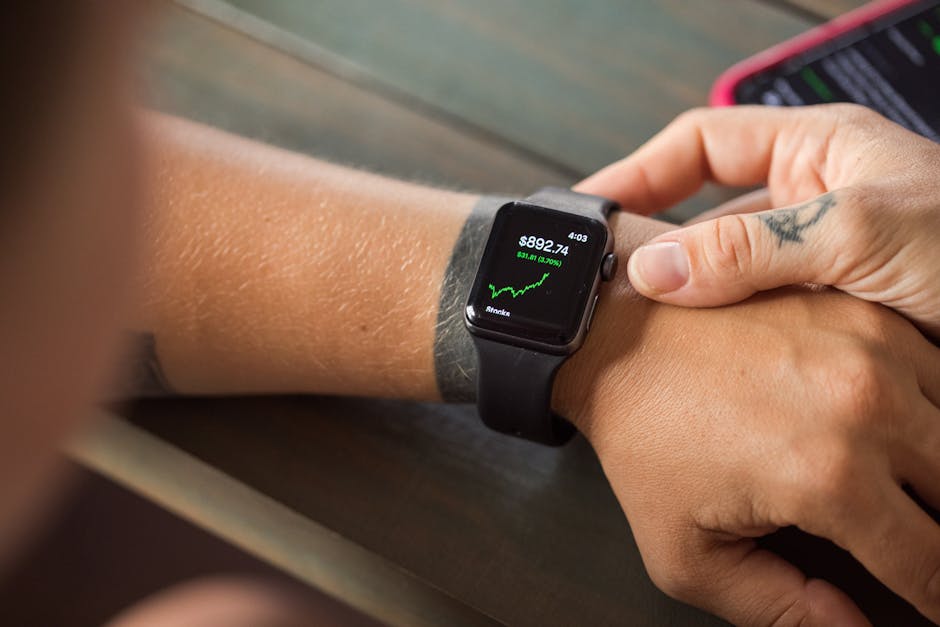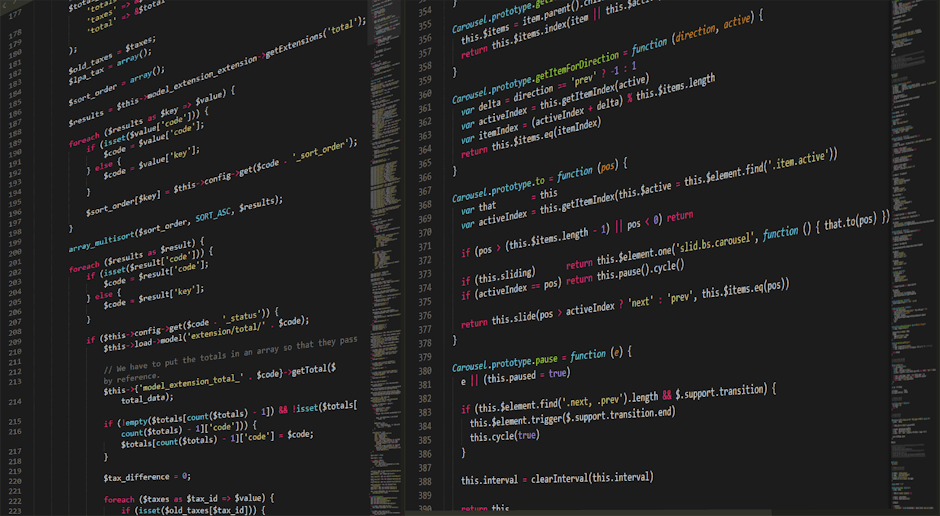
So, you’re trying to figure out how people are gonna find your website, or maybe your business, out there on the internet in 2025. It’s pretty wild, the whole digital space, you know. Things keep changing and what worked last year, well, it might need a little tweak now, or even a big overhaul. There are these two big areas people generally talk about when it comes to getting seen online, and that’s SEO and PPC. People often get them mixed up, or they think one is way better than the other, but it’s not really that simple, to be honest. It’s more like, they both got their own special thing they do, and knowing what those are, and how they play together, that’s what makes a real difference in this whole online world. If you’re a business person, or just someone curious about making their digital presence known, understanding these two marketing bits, it’s really something you ought to get your head around, yeah? Because it means the difference between your amazing widget getting seen by everyone, or it just sort of sitting there in the digital dark, which is not really what anyone wants, is it?
What Is SEO All About, Really?
Okay, so let’s chat about SEO first. SEO, that stands for Search Engine something-or-other, I mean, Optimization. It’s about making your website look super attractive to search engines, like Google, so when people go typing things into that search bar, your site is the one that shows up near the top. Not just near the top, but hopefully, really at the top, like number one, you know? The idea is, you’re not paying directly for those clicks. This is what people call “organic” traffic. It’s traffic that comes naturally because Google, or whoever, decided your page was just the best answer for someone’s question. That’s a good deal for your budget, because those clicks, they come for free, once you’ve done the work to get there.
Now, how does this work? Well, it’s a bit of a process, a whole bunch of things actually, that search engines use to decide who gets to be first. They look at what your content says, of course, if it’s good and relevant to what people are looking for. But it’s also about how your website is built, like, is it fast? Does it work okay on a phone, or is it all broken and weird? Are other websites linking to yours, sort of like giving it a vote of confidence? And in 2025, with all the AI stuff happening, Google’s gotten even smarter, way smarter, at understanding what a page is really about and if the information on it is, you know, trustworthy and helpful. They’re big on things like E-E-A-T, which means experience, expertise, authoritativeness, and trustworthiness. So, if you’re a doctor, your health advice needs to come from a real doctor, not just some random person, generally speaking. It’s a continuous thing, SEO, not just a “set it and forget it” kind of deal. You’re always checking, tweaking, trying to make things better so you stay visible.
There are a few big pieces to this whole SEO puzzle. First, there’s the stuff right on your actual pages, we call that “on-page SEO.” This means using the right words and phrases, making sure your titles are good, and that your content is well-written and answers questions. Then you got “technical SEO,” which is all the backend stuff, the code, the site speed, making sure Google’s little robot crawlers can actually find and read everything. And then there’s “off-page SEO,” which is about getting links from other respectable websites pointing back to yours, kind of like endorsements. All these different parts, they generally come together to form how a search engine sees your site, and how much it decides it likes it for certain search terms, which is what we want, right? We want to be liked by the search engine.
Understanding PPC: The Paid Side of Things
Alright, shifting gears a bit, let’s talk about PPC. This is pretty much the other big way to get seen online. PPC stands for Pay-Per-Click. And it’s exactly what it sounds like. You pay a fee every single time someone clicks on one of your ads. It’s not organic, it’s paid, upfront, a bit like buying ad space in a newspaper, but way more targeted. Usually, these ads show up right at the top of the search results page, or sometimes on the side, or even on other websites that are part of a big ad network. You’ll see them, they often have a little “Ad” label next to them, so people know they’re paid.
The cool thing about PPC is that it’s fast. Like, really fast. You can set up a campaign today and start getting clicks and potential customers almost immediately. Unlike SEO, where you might wait months to see results, PPC can light things up right away. You tell Google, or Facebook, or whoever, how much you’re willing to pay per click, what words you want your ads to show up for, and who you want to show them to, geographically, by interest, all sorts of ways. Then, when someone searches for those words, if your bid is high enough and your ad is good enough, boom, there you are.
The trick with PPC, though, is managing your budget. Because you’re paying for every click, you need to be smart about it. You gotta make sure your ads are really well-targeted, so you’re not paying for clicks from people who aren’t actually going to buy anything from you. It’s also about making sure your landing page, the page people go to after clicking your ad, is a good one, that it convinces them to do what you want them to do, like buy something or fill out a form. In 2025, a lot of the platforms have gotten super smart with automation and AI helping you find the right people, but you still need a human to keep an eye on things, making sure the robots aren’t just spending all your money on stuff that doesn’t actually work out for you.
SEO vs. PPC: Which One Should You Pick?
So, you’ve got SEO, the long game, the “free” traffic (after the work, that is), building up trust and authority over time. And then you’ve got PPC, the quick hit, paid traffic, instant visibility, but you gotta keep paying for it. It’s not usually a case of picking just one over the other, you know. Generally, it’s more about figuring out how they can both work together to make your online presence really strong.
For example, if you just started a brand new business and you need to get some eyeballs on your stuff right now, PPC can be a really good way to get going. You start running ads, you get traffic, you start making sales. While that’s happening, you’re also working on your SEO in the background, making your website better, creating good content, getting those links. Then, over time, as your SEO starts kicking in, maybe you can slowly reduce your PPC spend, or maybe you use PPC to target super specific, high-value searches that you haven’t ranked for organically yet.
It really is about having a strategy that includes both, normally. SEO builds a lasting foundation, it’s like owning the land your house is on. PPC is more like renting a billboard right on the highway – you get immediate attention, but when you stop paying, the billboard is gone. A lot of businesses find that using both, with careful planning, can actually give them the best of both worlds. They get that immediate push from paid ads while they are slowly building up their organic presence, which can mean more stability in the long run. Plus, seeing what keywords work well for your PPC campaigns, that can give you some good ideas for what to focus on with your SEO content, too. It’s like, they inform each other in a pretty cool way, if you think about it.
Making Sense of it All in 2025: A Digital Marketing Blend
Looking ahead to 2025, this blend of SEO and PPC is only getting more important, really. Search engines are getting more conversational, more visual, and AI is playing a bigger role in how people find stuff. This means your SEO has to be about more than just keywords; it’s about answering actual questions and providing useful experiences. And with PPC, the targeting is getting super precise, which is great for not wasting money, but it also means you need to be even smarter about who you’re trying to reach and what message you’re putting out there.
We’re seeing a lot more automation in PPC, like the ad platforms helping you bid and optimize campaigns, but it’s not a set-it-and-forget-it thing. You still need someone to keep an eye on it, to interpret the data, to make sure the robots aren’t just doing their own thing without understanding your actual business goals. The privacy stuff is a big deal too, with fewer cookies and more restrictions, so finding your audience might require some new thinking. For SEO, things like Core Web Vitals, how fast your site loads and how stable it is, they’re still a big deal. User experience is super important for ranking, which makes total sense, because Google wants to send people to websites that are good to use.
So, in 2025, understanding SEO and PPC isn’t just a nice-to-have, it’s sort of a fundamental requirement for anyone who wants to, you know, do well online. It’s about being smart, being adaptable, and realizing that the digital world is always moving. You gotta move with it, or you get left behind. And nobody wants to be left behind, particularly when it comes to getting discovered by potential customers who are out there looking for what you offer, right? It’s a continuous learning journey, one that keeps on giving back if you approach it with a clear head and an open mind, generally speaking.
FAQs About SEO and PPC in 2025
Q1: So what’s the real difference between SEO and PPC?
A: Okay, the big thing is, SEO is about getting free traffic, where your website shows up high in search results because search engines like it organically. PPC is where you pay money for ads to appear at the top of search results or on other sites, and you pay every time someone clicks on that ad. One is earned over time, the other is bought for immediate visibility, normally.
Q2: Should I just use one of them, like, only SEO or only PPC?
A: Most people find it’s better to use both. PPC can give you a quick boost and immediate clicks, which is good for new businesses or for special promotions. SEO builds a solid, long-term presence that keeps bringing in free traffic over time. They tend to work together pretty well, actually.
Q3: Does SEO still matter in 2025 with all the AI and changes?
A: Oh yeah, definitely. If anything, SEO is getting more important. With AI, search engines are better at understanding what’s good content and what’s just keyword stuffing. So, making sure your site is fast, trustworthy, and has really helpful stuff on it, that’s going to be key for ranking high.
Q4: How fast can I expect to see results from PPC compared to SEO?
A: PPC can get you traffic almost immediately, like, as soon as your ads are approved and running, which is often within a day or so. SEO, on the other hand, it usually takes months to start seeing decent results, sometimes even longer, because it’s about building authority and getting search engines to really understand and trust your site.
Q5: Is PPC just for big companies with huge budgets?
A: Not at all! While big companies do spend a lot, PPC can be super flexible for any size budget. You can set a daily limit on how much you want to spend, and target your ads very specifically so your money goes further. It’s all about being smart with your strategy, not just having the biggest wallet.






